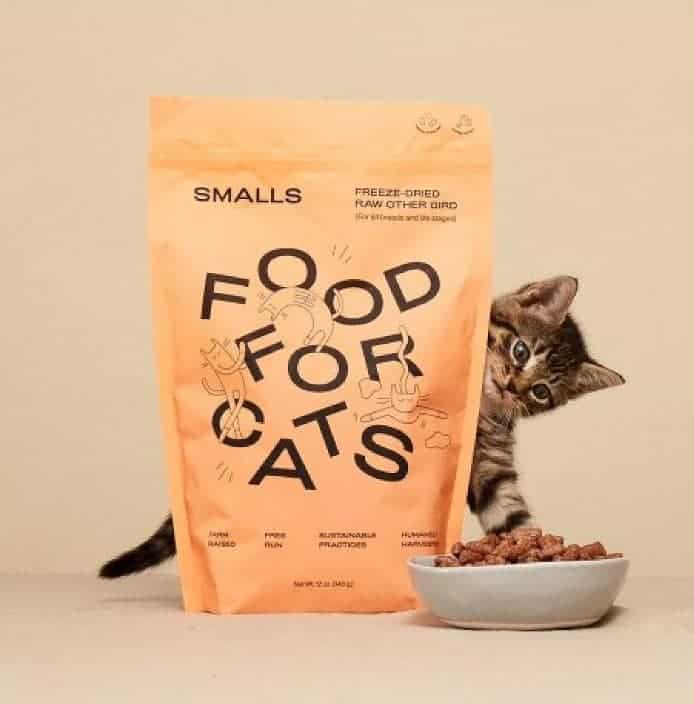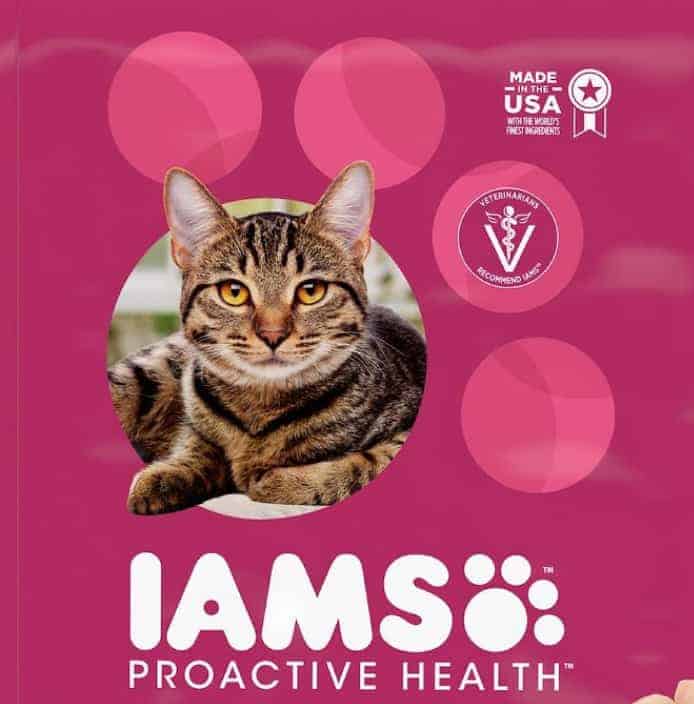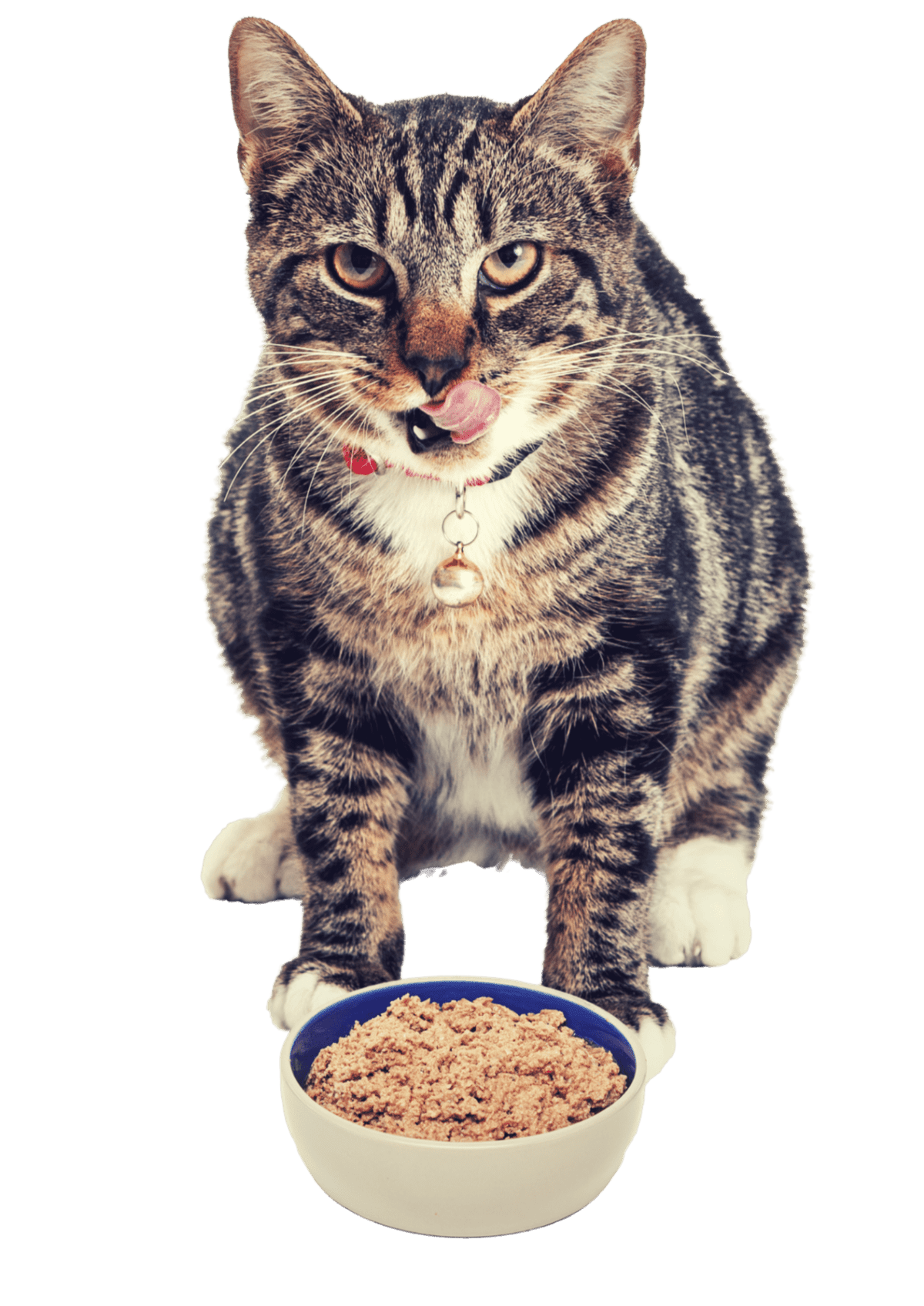Hey there, cat lovers! Have you ever wondered how long can cats go without food. Well, let me ease your worries and provide you with some useful information.
Cats are known for their incredible survival skills, and their ability to endure long periods without food is just one of them.
So, how long can cats actually go without eating? The answer may surprise you.
While every cat is different and there are various factors that can affect their tolerance, on average, a healthy cat can survive up to two weeks without food. However, please note that this is not something we should ever test or encourage.
Cats require a balanced and nutritious diet to maintain their health and well-being, just like us humans do.
It's important to remember that while cats may be able to survive without food for a limited period, it doesn't mean they should.
Regular meals and proper nutrition are essential for their overall health and longevity. If you ever notice your furry friend refusing to eat or going more than a day without food, it's crucial to consult with a veterinarian to rule out any underlying health issues.
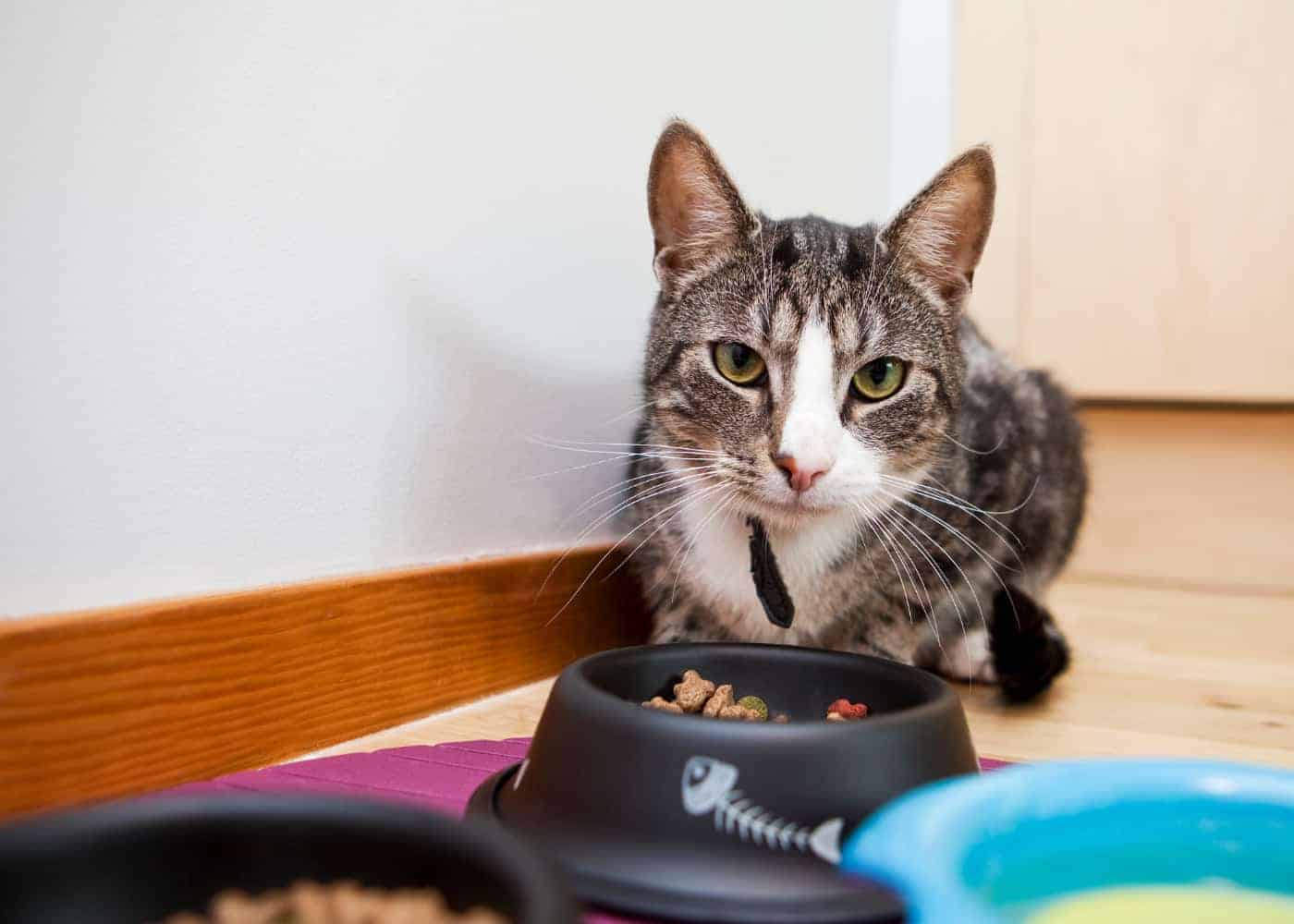
Overview of a Cat's Nutritional Needs
Let's dive into the fascinating world of a cat's nutritional needs. Briefly, let's start with why this topic is so important for us.
As responsible cat parents, it's crucial for us to understand what our furry friends need to thrive. Carbohydrates play a role in providing energy for our cats, while fat is essential for their overall health.
Remember, water intake and hydration are also key factors in keeping our kitties happy and healthy. Lastly, let's tackle common nutritional problems that our cats may face and learn how to address them.
As cat owners, it is our responsibility to ensure that our feline companions receive a balanced and nutritious diet to support their overall health and well-being.
A cat's nutritional needs are unique and differ from those of other animals. Cats are obligate carnivores, which means they require a diet that is primarily made up of animal protein. Unlike humans or dogs, cats have specific dietary requirements that can only be met through the consumption of certain nutrients found in animal tissues.
Providing a proper diet is crucial for several reasons. Firstly, it helps to maintain a healthy weight and body condition for your cat. Secondly, a balanced diet supports their immune system, which is essential for fighting off diseases and infections. Lastly, meeting their nutritional needs ensures that they have enough energy to thrive and enjoy their daily activities.
By understanding the importance of a cat's nutritional needs, we can make informed decisions about what to feed them.
Understanding Cat Physiology and Dietary Needs
Alright, let's dive into the fascinating world of feline physiology and how it affects their dietary needs. Understanding a cat's feline physiology is crucial in providing them with the right nutrition.
Their digestive system, for instance, is designed to process a high-protein diet. This means that their bodies are primed to derive energy from meat-based sources. Additionally, cats have higher energy needs compared to other animals, so it's important to provide them with a balanced and calorie-rich diet.
Creating a feeding schedule that aligns with their natural hunting instincts can greatly benefit their overall health and well-being.
Common Myths: Survival of Cats without Food
Let us now look at some common myths about cats and their ability to survive without food.
First off, as discussed, it's important to know that cats have a higher metabolism than us humans, so they need regular meals to keep their energy levels up. Depriving them of food for too long can lead to malnourishment and even organ failure.
Another misconception is that cats can eat more when they're stressed or anxious. Actually, the opposite is true. Stress can cause cats to eat less, which can be detrimental to their health.
The Real Deal About Fasting Cats: Detailed Science
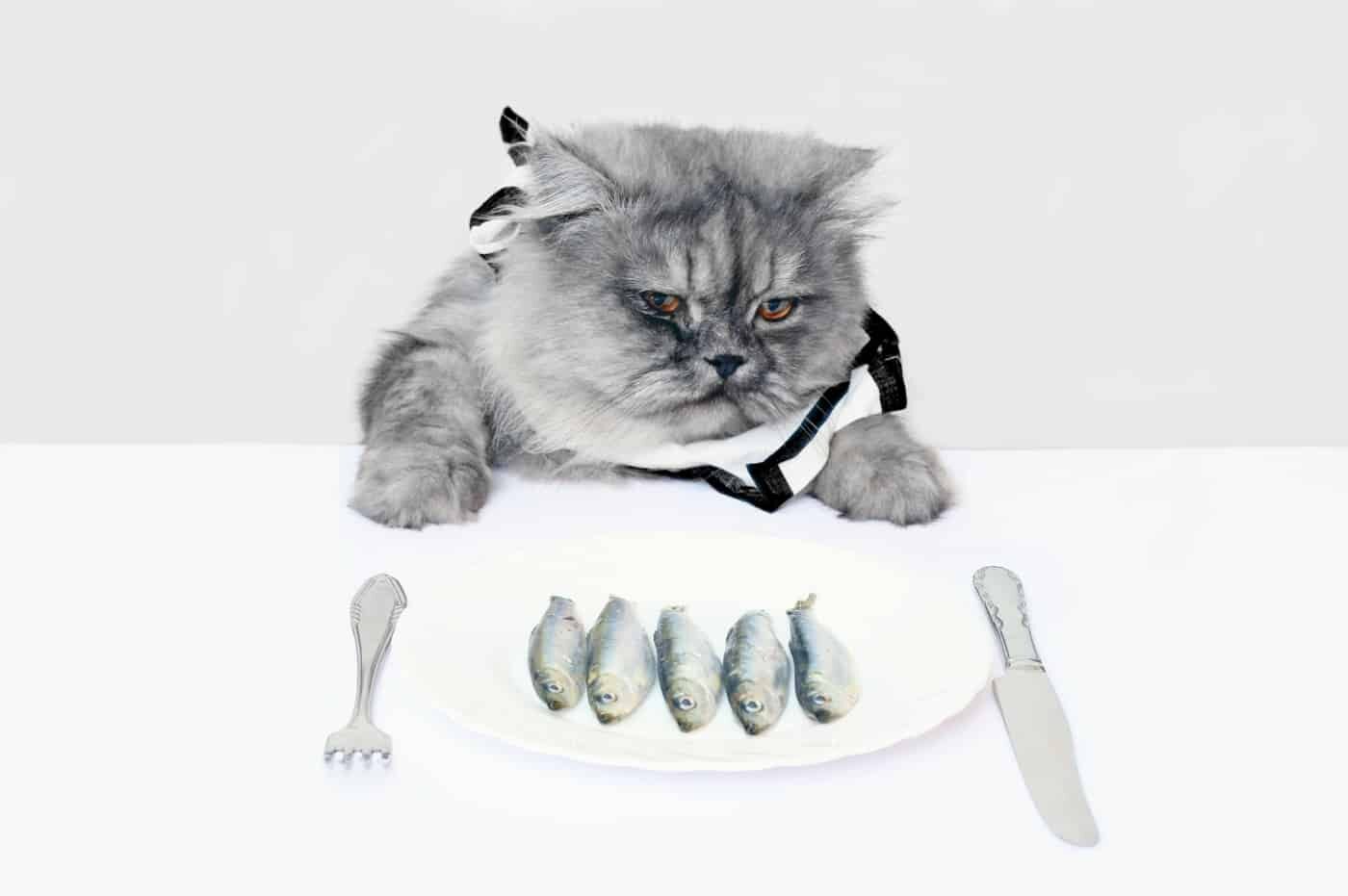
Scientific studies have shown that when cats fast, their body composition and muscle mass are significantly affected.
It's crucial to understand the maximum duration a healthy cat can go without food before severe health complications arise.
During fasting, various physiological changes occur in a cat's body, and their fat reserves play a vital role in sustaining their energy needs. So, let's explore the detailed science behind fasting cats and discover the real deal!
How Starvation Impacts a Cat's Body?
Now that we've debunked the common myths surrounding a cat's survival without food, let's delve into the real facts about fasting cats. You might be wondering, how does starvation actually impact a cat's body?
Well, scientific studies have provided us with some hard facts.
One study conducted examined the effects of prolonged fasting on cats' bodies. They found that when a cat goes without food for an extended period, their metabolism slows down significantly. This is a natural survival mechanism that allows the cat to conserve energy and prioritize vital bodily functions.
Additionally, a study conducted showed how starvation affects a cat's organ systems. They discovered that prolonged fasting can lead to muscle wasting, as the body begins to break down muscle tissue for energy. This can result in a significant loss of muscle mass and a decrease in overall body strength.
These concrete examples from scientific studies highlight the detrimental effects of starvation on a cat's body.
Unveiling the Potential Risks: Hepatic Lipidosis and Other Health Issues
Hepatic lipidosis is a condition where the liver accumulates excessive fat, often caused by prolonged fasting.
It's crucial to understand the nutritional considerations to prevent this condition. We'll also look at the potential complications and the long-term effects hepatic lipidosis can have on a cat's health.
But don't worry! There is hope for recovery. We'll discuss supportive care and the steps to help your furry friend on their journey to recovery.
Hepatic lipidosis can be a serious health problem for cats, as it can lead to liver failure if not addressed promptly. It is important to note that not all cats are at equal risk, but overweight cats, female cats, and those who have experienced sudden weight loss are particularly susceptible.
In addition to hepatic lipidosis, prolonged fasting can also result in other health issues such as muscle wasting, immune system suppression, and dehydration. These complications can have long-term effects on a cat's overall health and well-being.
To prevent hepatic lipidosis and other health problems, it is crucial to ensure that your cat maintains a healthy weight and receives proper nutrition.
Is Imitating Wild Cats the Right Approach in Diet?
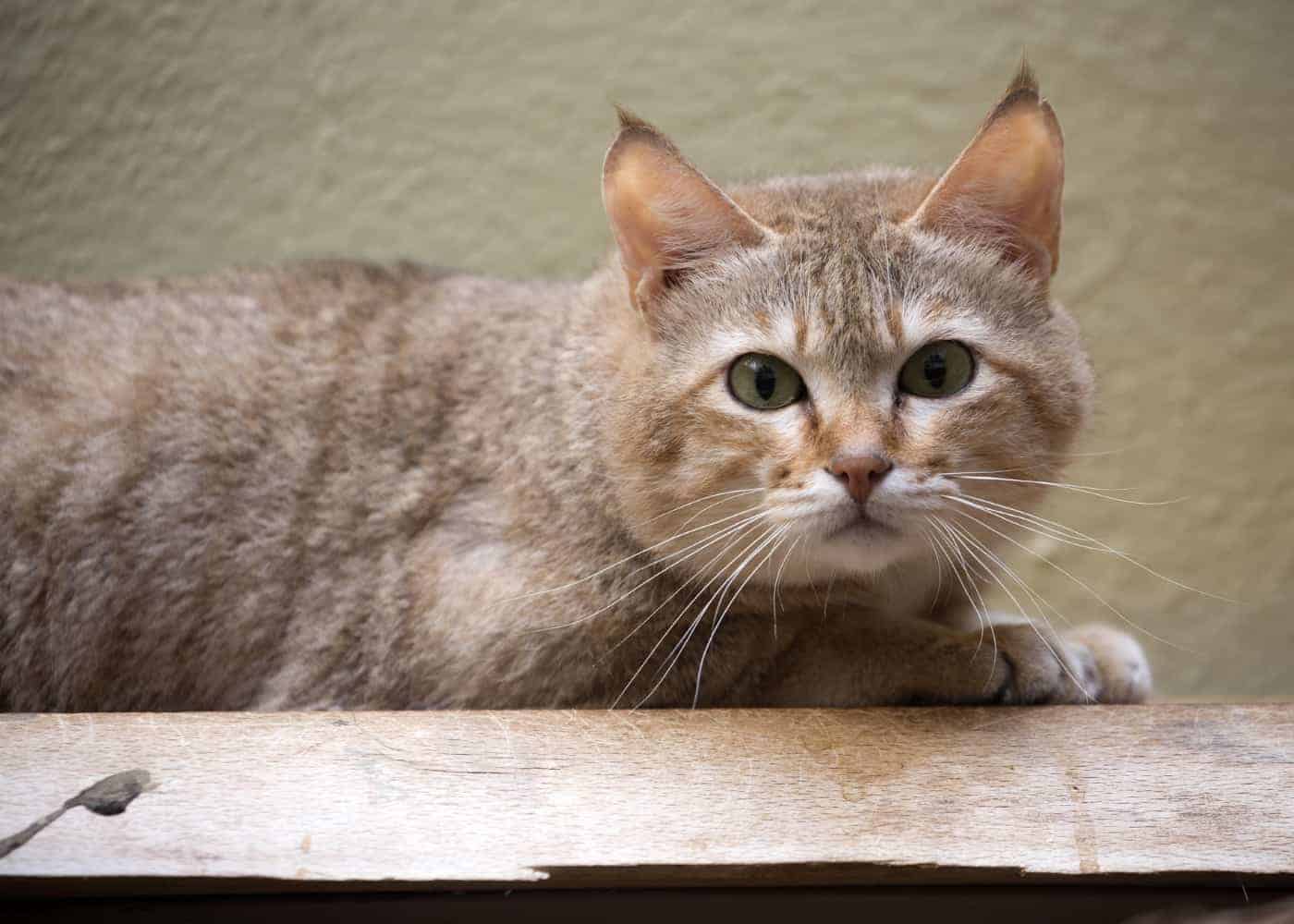
Many people believe that imitating the diet of wild cats is the best approach for feeding our domestic feline friends.
However, it's important to challenge the notion that cats need to fast or eat intermittently like their wild counterparts. While wild cats may need to hunt and eat infrequently, our pet cats have different lifestyles and nutritional needs.
They rely on us for their meals and it's our responsibility to provide them with a balanced and consistent diet. Consulting with a veterinarian can help us understand the specific dietary requirements of our cats and ensure that they receive the proper nutrition they need to thrive.
Cats have been living alongside humans for thousands of years, and their dietary needs have evolved accordingly. Domesticated cats have adapted to a lifestyle that includes regular access to food and a more sedentary routine. Fasting or eating intermittently may not be the best approach for their overall health and well-being.
Just like humans, cats have unique nutritional requirements that must be met in order for them to thrive.
They require a balanced diet that provides all the necessary nutrients, including proteins, fats, carbohydrates, vitamins, and minerals. While it is true that cats are obligate carnivores and have a higher protein requirement, it doesn't mean that they need to mimic the eating habits of their wild counterparts.
In fact, there are potential risks associated with fasting or intermittent feeding in cats.
Addressing the Issues of Picky Eaters
Are you struggling with a picky eater cat? Don't worry, I've got you covered!
Sometimes our furry friends can be a bit finicky when it comes to their food, but there are plenty of solutions to tackle this issue.
Tackling common reasons cats might refuse food and providing them with the right solutions can make a huge difference. Signs to watch for include weight loss, vomiting, and changes in behavior.
To encourage appetite, try offering a variety of foods and feeding at regular intervals. If the problem persists, seeking veterinary advice is crucial to rule out any underlying health issues.
Tackling Common Reasons Your Cat Might Refuse Food and What Can Be Done About it
Transitioning from the previous section, it's important to address the issue of picky eaters in cats. You may find that your furry friend refuses to eat their food, leaving you worried and unsure of what to do.
Don't worry, you're not alone in this! Many cat owners have experienced this.
There can be several common reasons why cats refuse food. It could be as simple as a change in their routine or environment, or it could be due to dental issues or digestive problems.
One of the solutions that you may is to try offer a variety of textures and flavors to entice your cat's appetite. Experimenting with wet or dry food, or even adding a small amount of tasty gravy to their meals, might do the trick.
Another reason could be stress or anxiety. For this try to to create a calm and safe eating environment for your feline friend. Make sure their food and water bowls are placed in a quiet area away from noisy distractions.
Nutritional Needs for Different Life Stages of Cats

When it comes to the nutritional needs of cats, it's important to understand that kittens, adult cats, and senior cats all have different requirements.
For kittens, a diet rich in protein and essential nutrients is crucial for their growth and development. Adult cats need a balanced diet to maintain their overall health and energy levels.
As cats age, their nutritional needs change again, requiring a diet that supports joint health and addresses specific age-related issues. Additionally, overweight or obese cats need a diet that helps them achieve a healthy weight, while underweight cats may benefit from a higher calorie intake.
How Does Dietary Needs of a Kitten, Adult and Senior Cat Differ?
Now that we've addressed the issue of picky eaters, let's look into the nutritional needs for different life stages of cats. Just like humans, cats have different dietary requirements as they grow and age.
- As kitten, their bodies are rapidly developing and they need a diet that supports their growth. This means they require higher levels of protein and fat to fuel their energy and promote muscle and tissue development.
- As an adult, cats have different needs. They require a balanced diet that provides them with all the essential nutrients to maintain their overall health and vitality.
- As a senior cat, their nutritional needs change yet again. Senior cats tend to have slower metabolisms and may require lower levels of fat and calories to prevent weight gain. Additionally, they may benefit from diets that contain joint-supporting ingredients to promote mobility.
Understanding these different dietary needs is crucial in providing our feline friends with the best nutrition at every stage of their lives.
Keeping Your Cat Hydrated: The Importance of Water
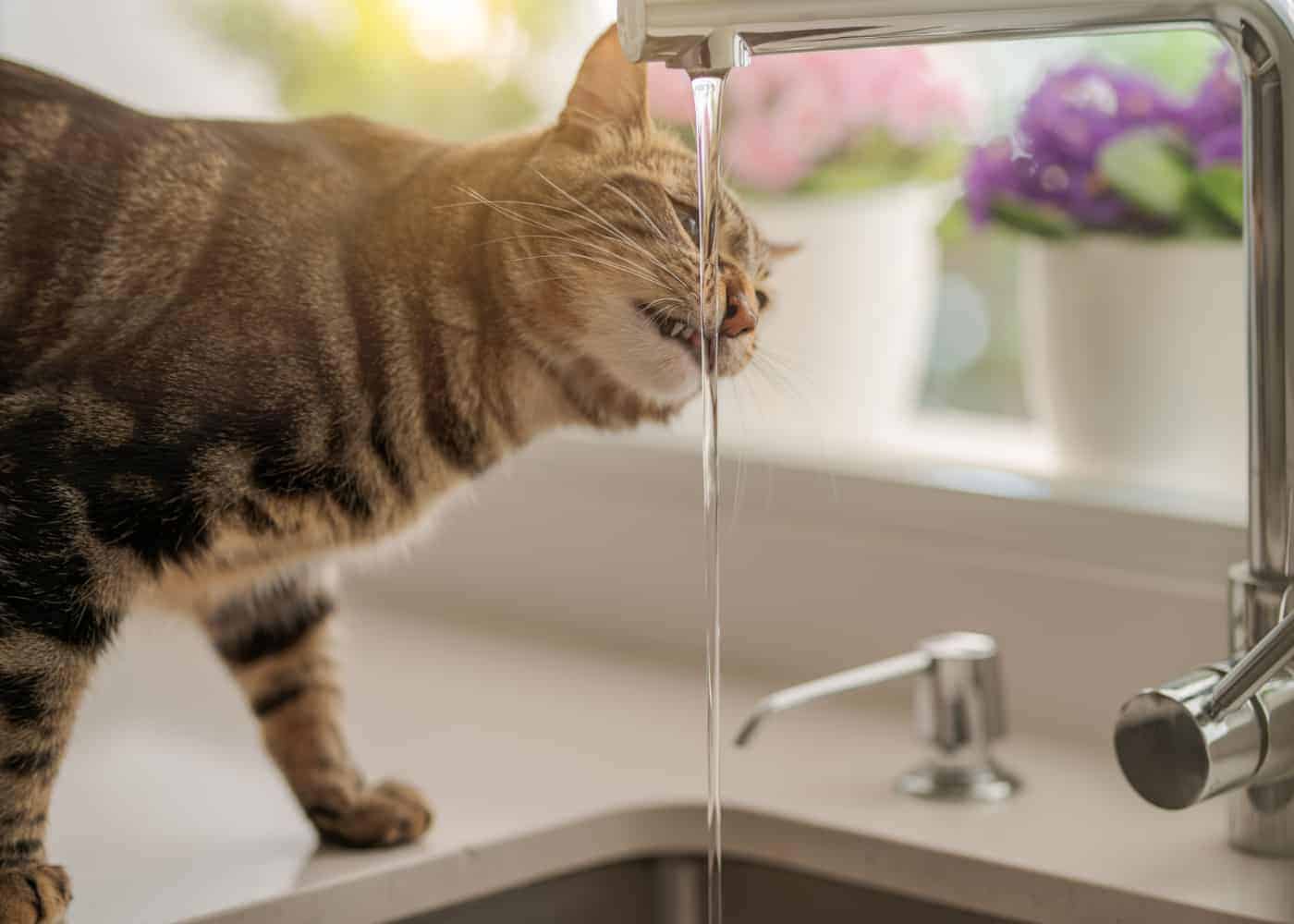
Keeping your cat hydrated is essential for their overall health and well-being.
Water intake plays a vital role in maintaining their body's functions and preventing dehydration. But did you know that water intake is closely related to the type of food your cat eats?
Dry cat food contains less moisture compared to wet cat food, which means that cats consuming dry food may need to drink more water to stay properly hydrated.
It's important to provide fresh water at all times and consider incorporating wet food into your cat's diet to ensure they receive enough hydration.
Importance of Water Intake and It's Relation to Cat's Food
Now that we've discussed the nutritional needs for different life stages of cats, let's turn our attention to another crucial aspect of cat care: keeping your furry friend hydrated.
Did you know that water is just as important as food for your cat's health and well-being? It plays a vital role in maintaining various bodily functions and helps prevent dehydration.
Water intake is closely related to your cat's food. Have you ever noticed that wet cat food contains a higher moisture content compared to dry kibble?
This is because cats, by nature, have a low thirst drive and rely on their food to meet some of their hydration needs. Wet food can be an excellent way to increase your cat's water intake, as it provides them with the necessary fluids to stay properly hydrated.
However, it's essential to remember that even if your cat mainly eats dry food, they still need access to fresh water throughout the day. Clean, freshwater should always be available to help them stay hydrated. Consider placing multiple water bowls around your home in easily accessible areas.
Signs Your Cat Could Be in Danger For Not Eating Properly
It's essential to pay attention to the warning signs that indicate your cat's health is seriously at risk due to starvation. Remember, our furry friends can't tell us when something is wrong, so it's up to us to be vigilant.
One of the first signs to look out for is a lack of energy and lethargy. If your usually active and playful cat suddenly becomes uninterested in their favorite activities, it could be a red flag. Additionally, vomiting and gastrointestinal issues can be indicative of a serious problem. Pay attention to any changes in your cat's eating habits, as well as any unusual vomiting or diarrhea.
Another sign to watch for is dehydration and sunken eyes. When a cat is not eating enough, their body doesn't receive the necessary fluids, leading to dehydration.
Expert Tips for Maintaining a Balanced Diet and Enticing Fussy Eaters
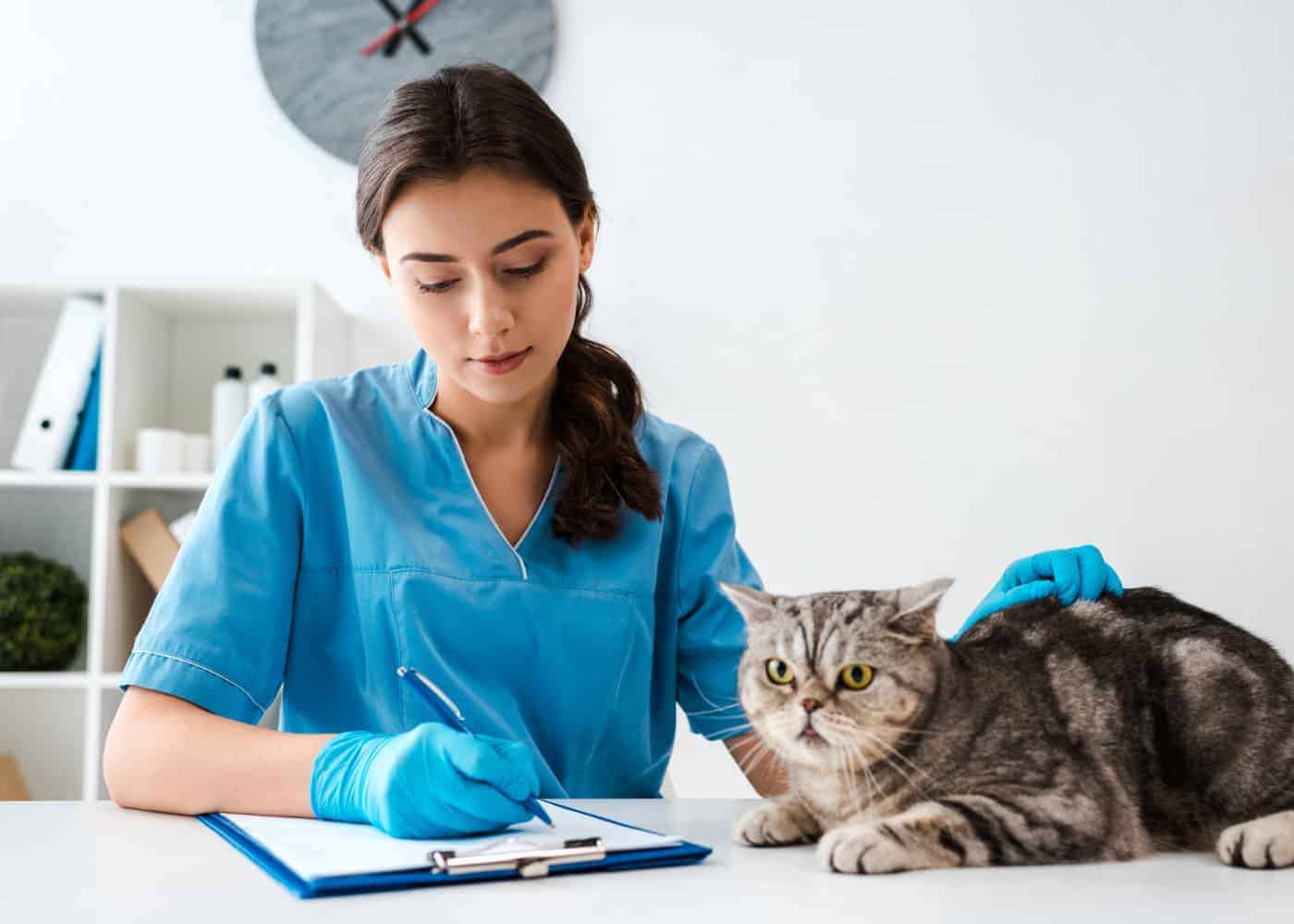
Are you struggling to get your picky cat to eat a balanced diet? Don't worry, you're not alone! Expert tips for maintaining a balanced diet and enticing fussy eaters can help you ensure that your furry friend is getting all the nutrients they need for optimum health.
8) Offer a variety of textures and flavors: Just like humans, cats can get bored with the same food every day. Introduce different textures and flavors to keep mealtime exciting. Try mixing wet and dry food, or adding a small amount of tuna juice to their kibble for a tasty twist.
9) Serve meals at regular times: Cats thrive on routine, so establish a feeding schedule and stick to it. A consistent mealtime will help your cat develop healthy eating habits and prevent them from becoming too hungry or too full.
10) Try interactive feeding: Engage your cat's natural hunting instincts by using puzzle feeders or treat-dispensing toys.
Expert Vet Advice: When To Seek Professional Guidance?
When it comes to our furry friends, we always want what's best for them. But how do we know when it's time to seek professional guidance from a vet?
- Persistent vomiting or diarrhea can be a sign of a serious underlying issue, so it's important not to ignore it.
- Unexplained weight loss or gain is another red flag that should prompt a visit to the vet. If your pet is showing lethargy or lack of energy, it could be a sign of illness.
- And if they're experiencing excessive thirst or urination, it's definitely time to schedule that vet appointment.
Conclusion
In conclusion, understanding how long cats can go without food and taking preventive measures is crucial for their well-being. As a cat owner, it is essential to know that cats should not go without food for more than 24 hours to avoid potential health issues.
Regular feeding schedules and providing a balanced diet can prevent cats from experiencing prolonged hunger. Additionally, implementing preventive measures such as keeping toxic foods out of their reach and providing mental stimulation can ensure their overall health and happiness. By staying knowledgeable and proactive, we can ensure that our feline friends lead a healthy and fulfilling life.
If you notice signs that your cat is not eating, it's essential to address the issue promptly. There are various strategies to encourage your fussy eater to consume a balanced diet, but if the problem persists, it's always wise to seek professional guidance from a veterinarian.
Remember, your cat's health and happiness rely on you as their caregiver. Providing them with the right food and monitoring their eating habits is crucial for their well-being.
Check out some of our commercial cat foods recommendations for your feline friend:
- Human grade Ingredients
- High proteins profile
- Compliance with standards
- Protein-rich food
- Help lose and maintain weight
- Supports the cat's skin and fur
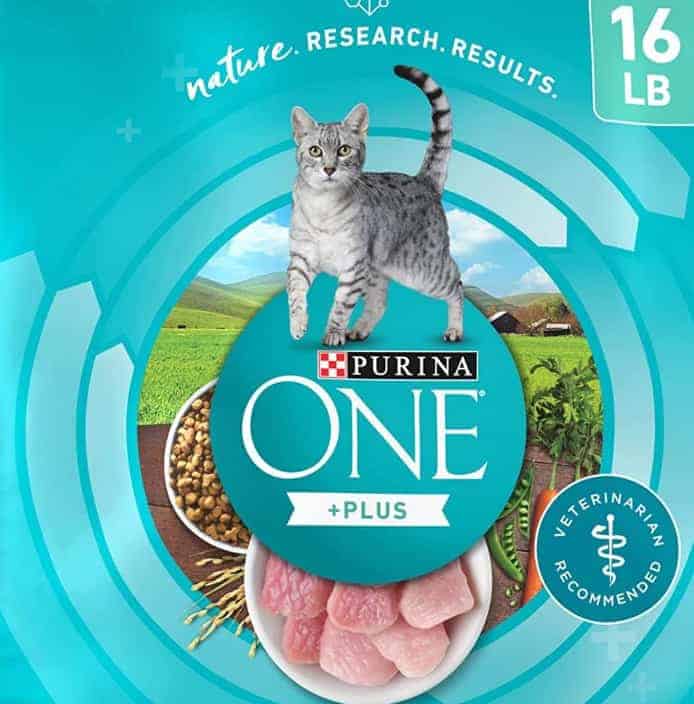
- Reasonably priced product
- Contains a lot of protein
- Support stomach and skin health

